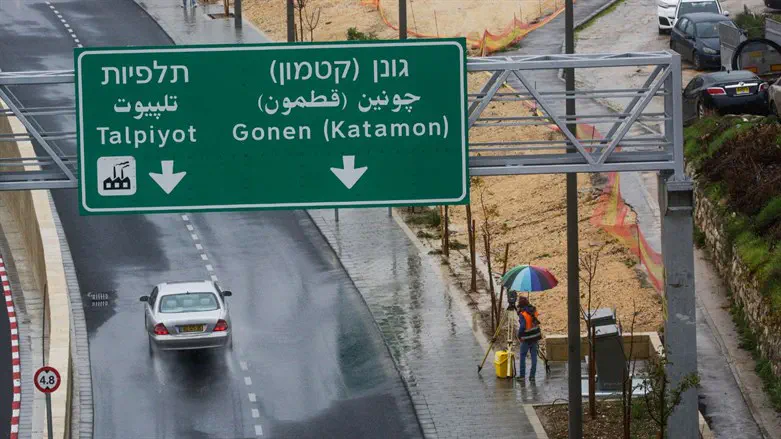
Autumn weather has arrived just ahead of Rosh Hashanah (the Jewish New Year), forecasters said.
Tuesday's weather is predicted to be cloudy or partly cloudy. Light rains fell in Jerusalem on Tuesday morning, and in northern and central Israel, rainfall is expected until the afternoon. During the morning hours, there was fog in the Negev mountain region. Temperatures in the mountains and inland regions will drop, reaching below seasonal average.
During the afternoon, the rains along the coastline will cease, but rainfall will continue in the central mountains and Samaria. North of Haifa, there may be rainfall along the coast and inland as well.
Tuesday night will see the rains let up in most areas of Israel, continuing only from the Nahariya and Tzfat areas and northwards.
Wednesday, Rosh Hashanah eve, will be partly cloudy with no significant change in temperatures. During the morning hours, there may still be light rainfall in northern and central Israel. During the early morning, there will be fog in the Negev and central mountains, Samaria, Tzfat, and the northern Golan Heights. These will increase over the course of the morning.
Thursday will see a rise in temperatures, with the heat becoming heavy near the Dead Sea. However, with the exception of Thursday, the heat in the coming days is not expected to be heavy.
From Friday to Sunday, the temperatures will warm significantly.
Meanwhile, according to the Israel Meteorological Service, the Jewish year 5784 (autumn 2023-autumn 2024) was the hottest year on record in 75 years, breaking the record set by the year 5770 (2009-2010).
All of the seasons in the year 5784 were warmer than average, with the summer reaching a peak of 48 degrees Celsius (118.4 degrees Fahrenheit). During the winter, temperatures were also warmer than seasonal average, but there was an unusual string of 15 consecutive rainy days.
